How to Fight Defeatism About Poverty in the World

“Every group of people I ask thinks the world is more frightening, more violent, and more hopeless — in short, more dramatic — than it really is,” says Hans Rosling, author of Factfulness. What contributes to this sense of defeatism about poverty and how we can fight against it?
Continue Reading ›How to Increase Your Church’s Impact on Global Poverty
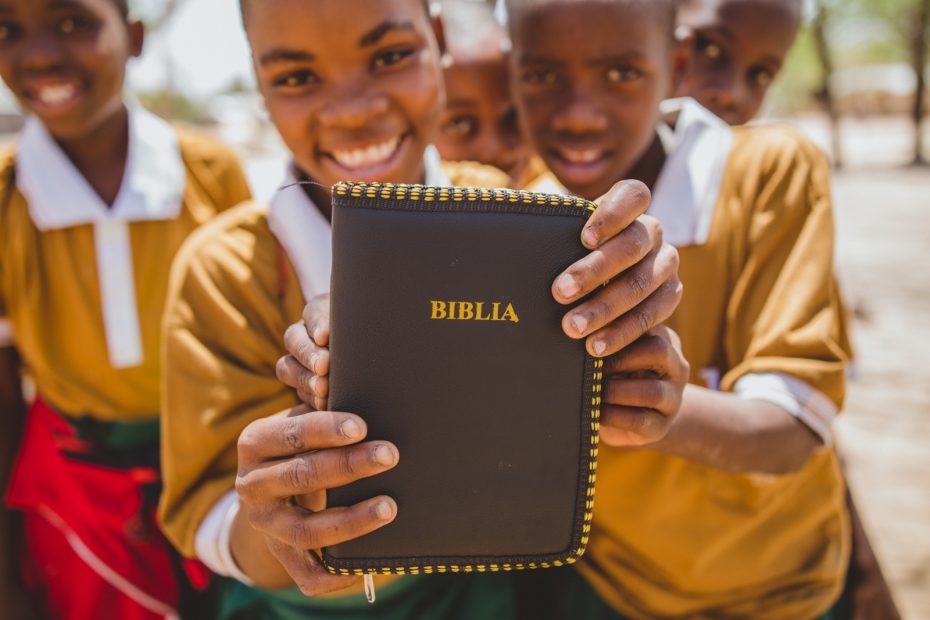
You desire to develop disciples who are passionately engaged with the God-given mission to care for those living in extreme poverty. Yet, it can be difficult to know where to begin. These highlights from Barna’s latest study, The Good News About Global Poverty will provide you with some simple ideas to put into action today.
Continue Reading ›
What People Don’t Know About Global Poverty (Yet)
A recent poll by Barna reveals that 70 percent of U.S. adults hold a perception of the state of global poverty that is simply not true.
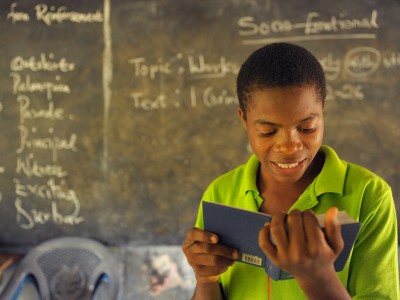
Child Development and Community Development: Is One Better Than the Other?
How we go about fighting extreme poverty contrasts with how other organizations work toward the same goal. We fight poverty personally; whereas, many organizations fight communally.
I don’t mean that other organizations aren’t personally invested or committed to eliminating extreme poverty. I mean that a child focused, child development approach to fighting poverty is distinctly different than a broader community development approach.
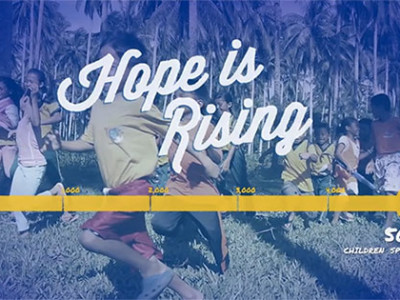
The Fight to End Extreme Poverty
The idea of being able to end extreme poverty in the world often feels overwhelming. But with the latest news from the United Nations, coupled with independent research about our sponsorship program, it no longer feels unattainable. In fact, it could even be accomplished within our lifetime. This good news is our motivation to fight harder than ever before to release children from poverty in Jesus’ name!
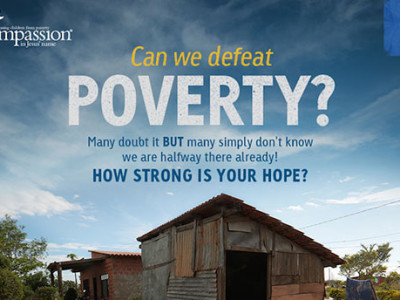
Can We Defeat Poverty? [INFOGRAPHIC]
Recent studies tell an incredibly positive story of progress against extreme poverty around the world. We now have decades of peer-reviewed research supporting the fact that we are making significant strides in combating the issue, but we’re finding out that people simply don’t know. People still believe the myth that the problem is too big and the solution is too small. But it’s not true!

The Key to Ending Poverty is Hope
The key to ending poverty resides in the capacity of human beings—and their view of their own capacity—to facilitate positive change.

Fast Living: How the Church Will End Extreme Poverty
Fasting isn’t an instrument to get God to hear our prayers or to help us master a primordial impulse or to accomplish anything. It’s something you do when circumstances are bad enough that you don’t want to eat and it would seem wrong to do so.
What is the Definition of Poverty?
The absence of a clear definition is a serious problem for organizations whose missions are to eradicate poverty or, in our case, to release children from poverty.
Tell us how you understand and define poverty, and then in future blog posts we’ll explain the basis of our holistic approach to ministry and what our definition and understanding of the problem is.
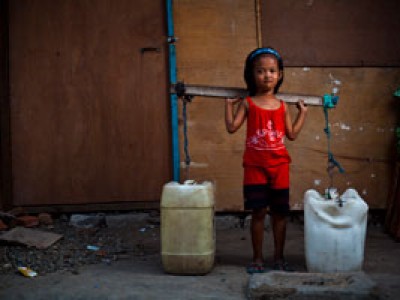
Will Eliminating Extreme Poverty Require a Miracle?
How big is the problem of extreme poverty? Three billion people worldwide and 1 billion children deep. But despite the size of those numbers, many people at Compassion believe that we can eliminate extreme poverty in our generation, that we can remove or utterly destroy it.
You might think we’re “drunk on the spirit,” that our goal is unrealistic, completely irrational or even not Biblical, and I will be honest with you, I thought it was out of I thought of it as an impossible task, too.
Fewer Children Are Dying
Good news from the government is pretty rare. Good news in the media is even more rare. So when I read this headline the other day, I smiled: “WHO sees good progress on UN health goals for poor.”
According to a recent study by the U.N.’s World Health Organization, good progress is being made on health-related Millennium Development Goals (MDGs).
- Fewer children are dying.
- The estimated percentage of underweight children under 5 has dropped.
- New HIV infections have declined.
- Existing cases of tuberculosis are declining.
- The world is on track to achieve the MDG target on access to safe drinking water.
Let’s just pause for a moment to let this sink in. We are making progress. Let’s celebrate this!
Of course, this doesn’t mean we can slow down in our fight against global poverty. If anything, seeing progress should motivate us to work even harder. And, as has been mentioned around here before, eliminating extreme poverty is just a matter of priorities.
The annual income of Christian American churchgoers is $5.2 trillion. The amount of money needed to end global poverty is about $74 billion a year. … Basically, 1 percent of our annual income a year is what is needed to end extreme poverty.
So the question is, what are your priorities?
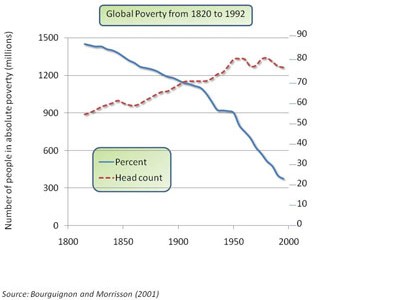
The Ability to Eliminate Extreme Poverty Is Just a Matter of Priorities
The Church’s ability to eliminate extreme poverty is just a matter choosing to do so. We used to say that 40,000 children under age 5 die every day of hunger or preventable diseases. Today, that number is 24,000. These statistics show that in 20 years the number of children who die every day of hunger or preventable diseases has been cut in half. Yet, the birth rate is actually going up. The population is increasing.


